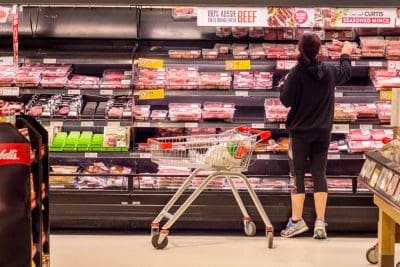FOOD security presents real and growing challenges to Australia, an Australian Parliament’s Agriculture Committee inquiry has found.
 The inquiry into food security in Australia examined ways to strengthen and safeguard Australia’s food security, focusing on production, supply chains and key inputs, as well as climate change, biosecurity and food insecurity.
The inquiry into food security in Australia examined ways to strengthen and safeguard Australia’s food security, focusing on production, supply chains and key inputs, as well as climate change, biosecurity and food insecurity.
Handing down the report this week, committee chair, Meryl Swanson MP, said food security is not something Australia can continue to take for granted.
“COVID-19, floods, the effects of the war in Ukraine, and outbreaks of Foot and Mouth Disease and Lumpy Skin Disease in Indonesia have highlighted risks to our food system,” she said.
“Systemic change is required so that all Australians, and those that depend on Australian food production, will be food secure.
“Consultation, cooperation, coordination and innovation are the keys to food security.”
The committee has made 35 recommendations to address food security in Australia, including:
- creating a comprehensive National Food Plan;
- appointing a Minister for Food;
- establishing a National Food Council;
- developing a National Food Supply Chain Map;
- measures to facilitate innovation in the production of food; and
- measures to eliminate food waste.
The report also proposes measures to improve sustainability and resilience in the food supply chain, improve access to labour, and reduce food insecurity.
Over the course of the inquiry, the committee held 24 public hearings, visited numerous sites around Australia, and received 188 written submissions from individuals, industry and community groups and government bodies.
The committee thanked all those who took part in the inquiry by providing written submissions and giving evidence at public hearings or hosted the committee on site visits. The committee said it is particularly grateful to those who took time out of their days to host the committee at various sites around the country and the insights this provided into the work of providing for the food security of Australians.
The full report can be found on the committee’s inquiry webpage.

Please stop exporting livestock. We don’t need to. Why not transport the meat packed and sealed by Australia. This would preserve our live stock and prevent them contracting any disease. Also may I add that our livestock gets slaughtered in a more humane way.
Veronica Killen
You say ‘our livestock’; unless you’re a producer they are not your livestock. And yes, we do need to export our sheep and cattle. There are not enough workers and not enough meat works. There are not enough houses to house workers they can’t get. El Niño is back and growers are giving away sheep. We have market failure thanks to Albo.